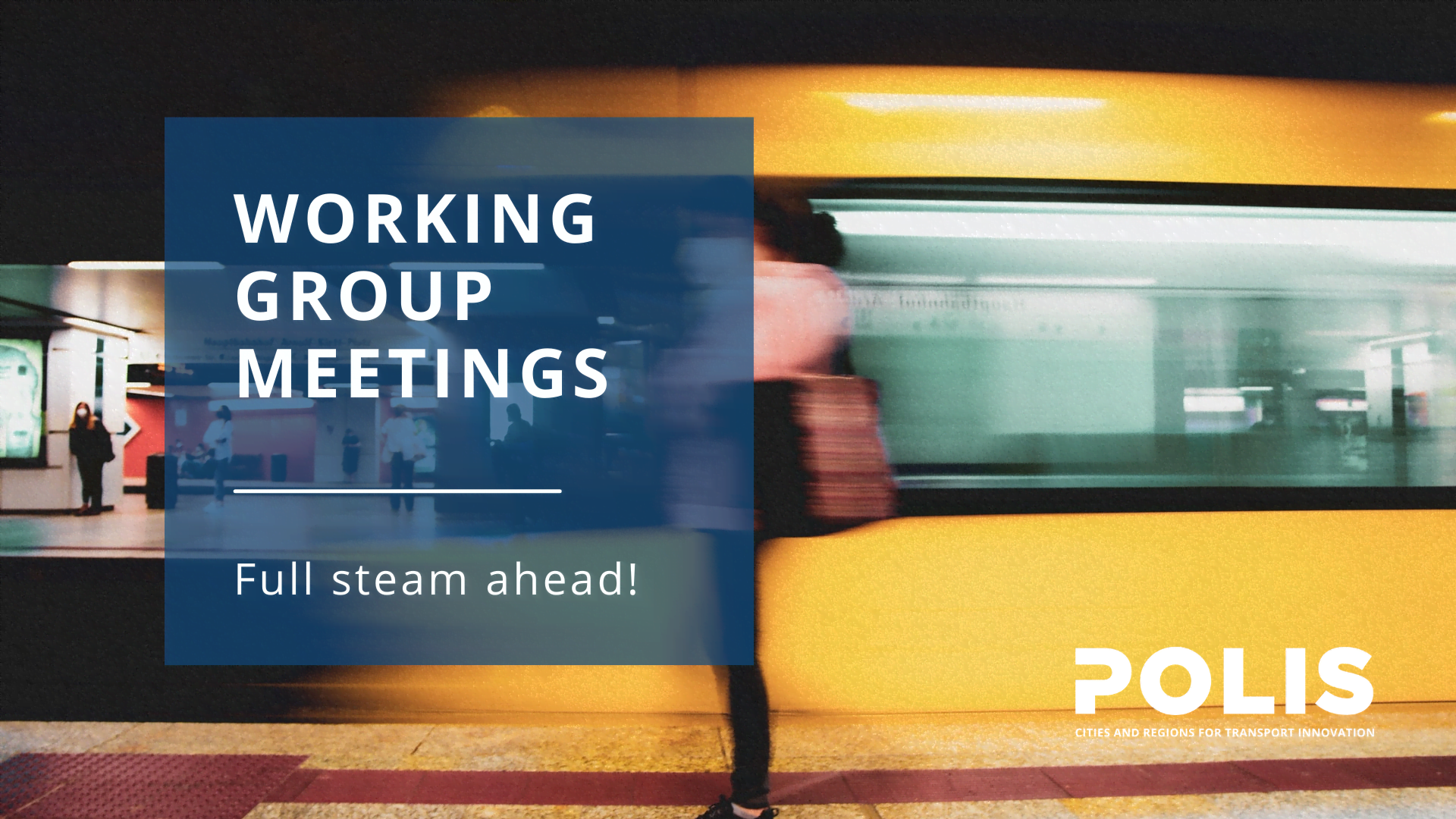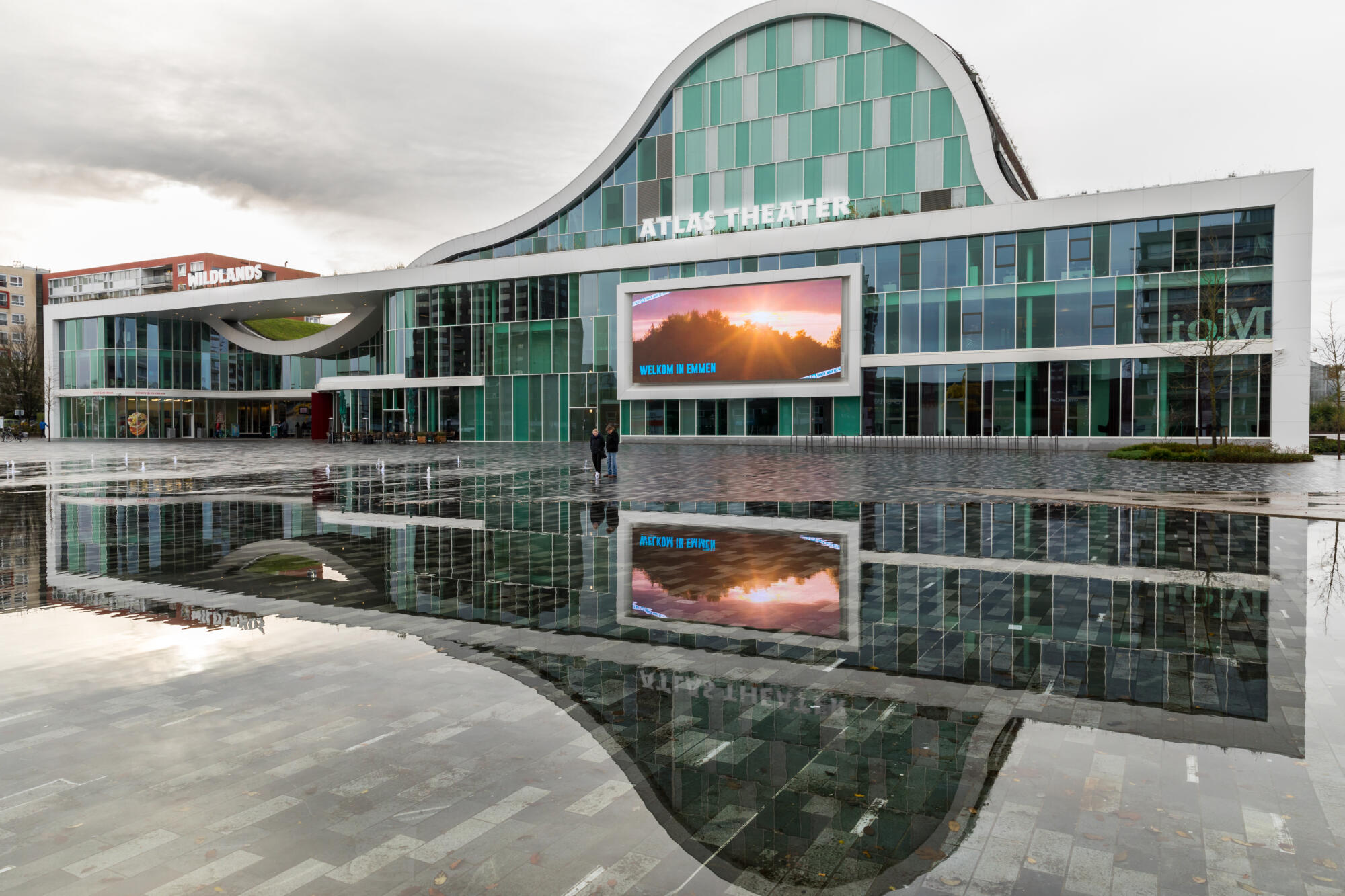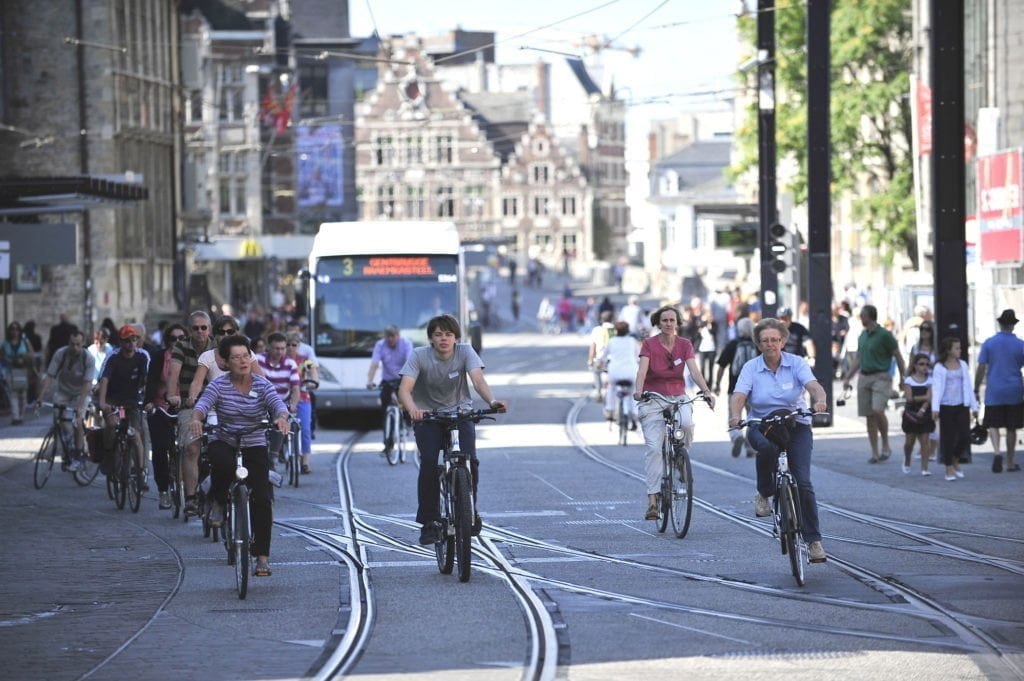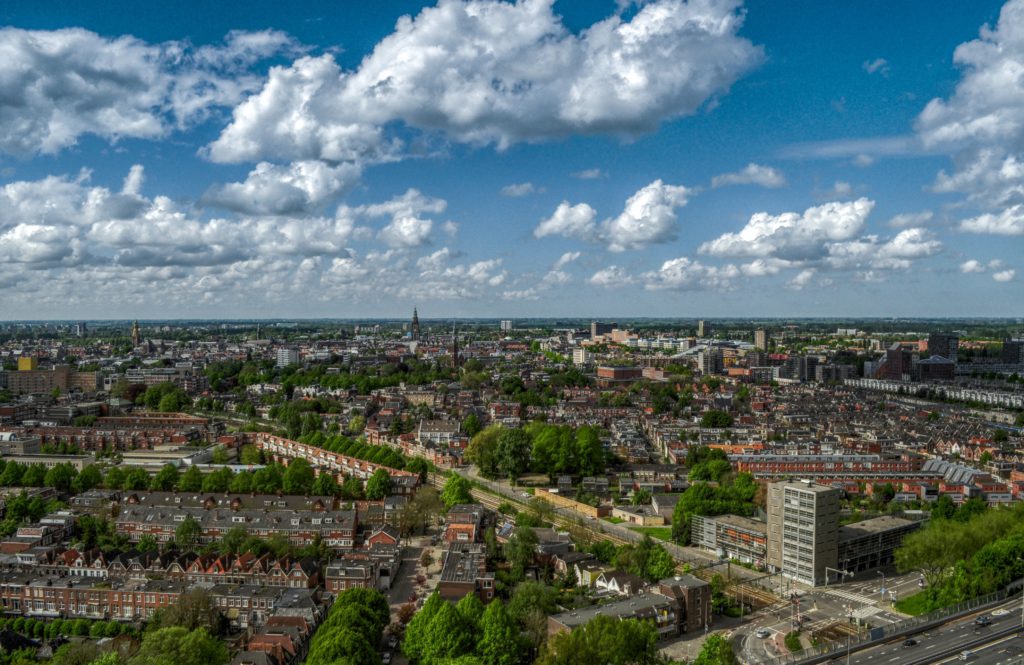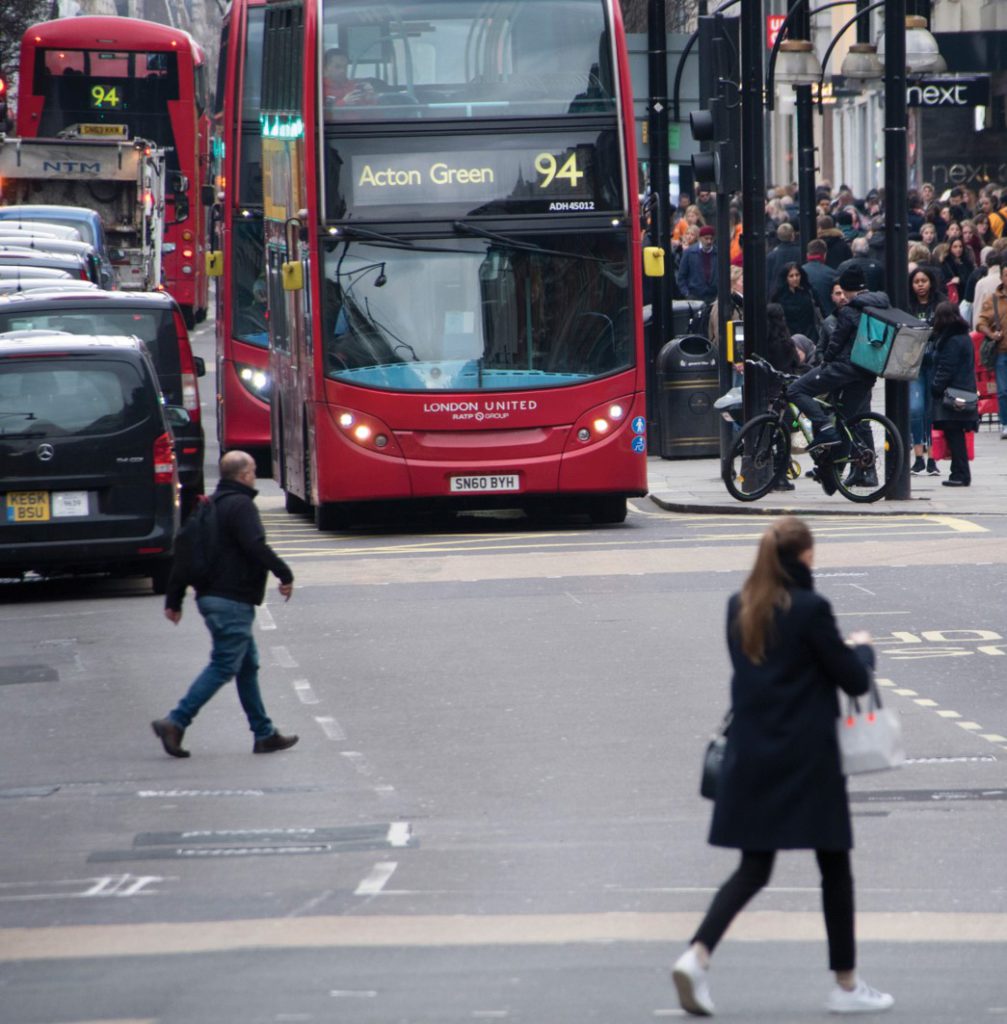POLIS Working Groups: What you missed
As the summer approaches, it is again time to look back at POLIS’ recent Working Group events. With meetings now back in in-person and hybrid formats, we have all been enjoying the chance to reconnect with colleagues from across Europe — and beyond!
It has been an incredibly busy few months and since our last round-up, we have continued to examine the leading challenges facing our cities and regions in their pursuit of more sustainable urban mobility, putting out heads together to find accessible and transferable solutions.
From deep dives into the world of traffic efficiency to explorations of how Small and Medium-sized cities are leading the way forward and the latest developments in urban freight.
All this, topped off with our Leadership Summit in Glasgow!
If you missed any of this — here is a snapshot of what happened.
Traffic Efficiency: Members in the spotlight – Ghent
The ‘Members in the Spotlight’ series is a 1-hour webinar series that allows POLIS members to learn from the mobility data journey of a member from various perspectives, be that in terms of strategic approach, skills development, organisational processes, data sharing, technical issues, among others.
Previous editions have heard from the city of Paris and Brussels’ mobility operator, STIB/MIVB, where we explored building data cultures, capitalising on MaaS platforms, data acquisition models, use cases, and the value of these data strategies in long-term sustainable mobility agendas.
This time, we headed to the Belgian city of Ghent, to learn how the city’s traffic managers have been providing colleagues, relevant stakeholders and citizens with multi-modal mobility advice.
Traffic Efficiency: A focus on (digitising) transport data
Interest in sharing transport data between the public and private sectors is gaining pace around Europe and is being spurred on by national and European data-sharing legislation. This is giving rise to the importance of making transport data available in a machine-readable and standardised format.
This meeting examined some of the more advanced transport data digitisation programmes and projects being implemented across Europe, and current and upcoming European legislation mandating the sharing of data and prescribing how that data should be made available.
With practical contributions from several local, regional and national authorities, as well as an overview and update of EU policy, this was an incredibly hands-on meeting, providing critical advice to traffic managers across Europe!
Urban Freight: Madrid meeting
The focus of the meeting was to discuss challenges posed by last-mile on-demand logistics in European cities, and exchange potential solutions to tackle these, including the adoption of Digital Twins in an urban environment.
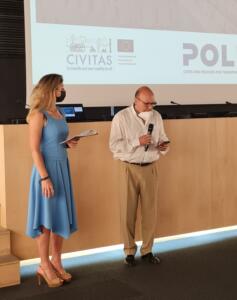
The Urban Freight group meets in Madrid
Digital twins could have a significant impact on the design, operation, and optimisation of logistics infrastructure, such as warehouses, distribution centres, and cross-dock facilities in European cities.
This gathering was exceptionally open to members of the LEAD Advisory Board and Transferability Platform, to further exchange and network with POLIS members on ongoing activities and projects dealing with urban logistics.
Safety & Security: Fixing the fundamentals: single crashes and speed reduction
This day-long event travelled the length and breadth of critical safety issues affecting our cities. Speakers had the opportunity to discuss road safety for pedestrians and cyclists, two marginalised categories in the road safety scene.
We also heard from Stockholm, Bilbao, Paris, London, Brussels and Liverpool on reducing the speed to 30 km/h in urban areas, highlighting difficulties or achievements, each with a different path but all motivated by the same objective: reducing the speed of vehicles in urban areas.
SMC Platform: Emmen and Groningen
POLIS’ Small & Medium-Sized City (SMC) Platform convened in Emmen and Groningen to discuss the role of smaller municipalities in achieving our sustainable and smart mobility future.
The POLIS’ SMC Platform is proving the innovative potential of Europe’s smaller cities. From Reggio Emilia to Rogaland, Leuven to Payes Loire, cities (and regions) across Europe joined for two days of comprehensive discussions on the key challenges for sustainable mobility in smaller cities and the shared solutions at hand.
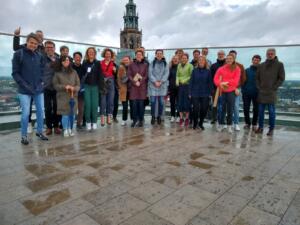 POLIS has long championed the central role of SMCs in Europe’s sustainable mobility transition, supporting their capacity as test beds for innovation. The SMC platform provides a unique forum for exchange on the specific challenges these cities face and exploring common solutions, while raising political awareness at international level.
POLIS has long championed the central role of SMCs in Europe’s sustainable mobility transition, supporting their capacity as test beds for innovation. The SMC platform provides a unique forum for exchange on the specific challenges these cities face and exploring common solutions, while raising political awareness at international level.
“Exchanging knowledge and experiences and inspiring each other is central, we have explored our shared mobility ambitions and the challenges we are tackling,” said Philip Broeksma, Vice Mayor of Groningen.
This event did just this, placing cities, international decision-makers, new mobility service operators and pilot project conveyors in direct conversation, examining Urban Nodes, shared mobility services, climate ambitions and financing solutions. Indeed, with several successful Climate Neutral city mission applicants in attendance, there was much to learn and share!
The first day took place in Emmen, the current chair of the Platform, before delegates travelled to Groningen to examine several pilot projects and examine the city’s approach to street space reallocation.
POLIS & ALICE joint webinar series: Kick-off webinar
We often regard passenger and freight transit as two independent systems, but what if this was not the case? Seems a radical concept, but not as outlandish as one may think! The POLIS-ALICE Webinar series kicked off with an exploration of how the two can be combined.
Most authorities with an urban remit have not developed coherent freight transport policies to the same extent that they have their public transport policies. As last-mile logistics face growing pressure to meet rising demand while slashing carbon emissions, creative solutions need to be found.
To help cities and regions navigate this issue, POLIS’ Urban Freight Working Group joined forces with the European Technology Platform (ALICE) to explore the challenges faced and the solutions being found.
The POLIS-ALICE partnership seeks to forge synergies between projects, initiatives, cities-regions and companies to accelerate innovation. As a result, the meeting heard from outcomes of current projects working on this topic, exploring the potential for scalability and transferability.
The webinar heard from SPROUT and MOVE21 projects, as well as logistics practitioners and public transport operators, who discussed current practices and R&I, thus identifying barriers to progress and providing insight into avenues for action.
Want to know more about our working groups?
POLIS' Working Groups offer an excellent platform for peer-to-peer exchange (and rigorous debate) with other European cities and regions on a wide range of urban-mobility-related topics including freight, safety, clean vehicles & air quality, health & active travel, governance, social & economic access, and traffic efficiency.
Our membership draws from across Europe and beyond, from large capitals including London and Paris to small and medium-sized cities such as Leuven and Ravenna, as well as regions such as Baden Württemberg and Catalonia.
In addition, our associate members are leading academic institutions including Gustav Eiffel University, Breda University and CEREMA — as well as operators including SBB. This is a continually growing list and over the last year, we have continued to welcome many new members.
Find out how to join our network HERE.
